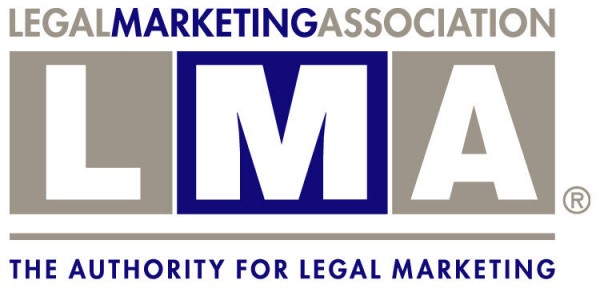Regulatory Developments
FinCEN Publishes an Administrative Ruling Regarding
Customer Identification Program and Customer Due Diligence
Requirements for Designated Beneficiaries of Individual Retirement
Accounts
On March 15, FinCEN issued an administrative ruling affirming that
broker-dealers must comply with Customer Identification Program
(CIP) and Customer Due Diligence (CDD) requirements when
distributing to a beneficiary of IRA funds inherited as part of a
charitable estate. The ruling confirms that such broker-dealers
must implement a CIP enabling them to verify the identity of each
customer. Specifically, for legal entity customers, broker-dealers
must collect a name, address, and employer identification number,
at a minimum. These broker-dealers must also establish and maintain
written CDD requirements to identify and verify the beneficial
owners of legal entity customers by obtaining the same
information.
CFPB Director Delivers Remarks on Standard Setting in an
Open Banking System at the Financial Data Exchange Global
Summit
On March 13, CFPB Director Rohit Chopra delivered remarks at the Financial Data Exchange Global
Summit about the importance of setting industry standards,
specifically with respect to data standards and sharing protocols,
as the US shifts to an open banking system under the CFPB’s proposed Personal Financial Data Rights rule
intended to empower consumers to more seamlessly switch between
financial products by giving consumers rights to access their data.
Emphasizing the need for standard-setting in financial services and
open banking, Chopra warned of the dangers to competition in open
banking when dominant firms with prevailing market power weaponize
industry standards to limit consumers’ exercise of their
rights. To prevent large incumbents from too heavily influencing
standards in their favor, the CFPB plans to codify which attributes
(e.g., board composition, funding structure, independence from
powerful players) standard-setting organizations must demonstrate
to be recognized by the CFPB as a standard-setting organization
under the rule and then have those organizations apply for
recognition – all before the rule is finalized in the
fall.
Enforcement and Litigation Developments
SEC Charges Two Investment Advisers with Making False
and Misleading Statements About Their Use of AI
On March 18, the SEC announced that it settled charges against two
investment advisers, Delphia (USA) Inc. and Global Predictions
Inc., for making false and misleading statements about their use of
AI. The SEC found that the two firms falsely marketed to their
clients that they were utilizing AI in particular ways when, in
fact, they were not. Both firms were also found to have violated
the Marketing Rule, which prohibits registered investment advisers
from disseminating advertisements that include untrue statements of
material fact. Both firms consented to the entry of orders finding
that they violated the Advisers Act and paid a fine; the firms did
not admit or deny the SEC’s findings.
“As more and more investors consider using AI tools
in making their investment decisions or deciding to invest in
companies claiming to harness its transformational power, we are
committed to protecting them against those engaged in ‘AI
washing’.”
‒ Gurbir S. Grewal, Director of the SEC’s Division of
Enforcement
Check Out Goodwin’s Latest Industry Insights
New Client Alert: SEC Climate Rules Stayed by Fifth
Circuit – For Now
On March 6, the SEC adopted expansive new climate disclosure
rules (the “Rules”). As noted in our March 12, 2024
client alert summarizing and analyzing the new Rules, litigation
challenging the Rules was already pending. Additional litigation
seeking to strike down the Rules is currently pending in four
federal courts of appeals—the US Courts of Appeals for the
Fifth, Sixth, Eighth and Eleventh Circuits—and we expect that
additional challenges will be filed in the federal courts of
appeal. In addition, the US Courts of Appeals for the Second and DC
Circuits are considering challenges by environmental groups
claiming that the Rules do not go far enough. To read the full
alert, click here.
New Insight: Dos and Don’ts of Interacting with Bank
Regulators
Supervision is a daily fact of life for bank boards and
management. In this insight, Goodwin’s banking team offer
strategies for how both board members and members of management can
ensure that the supervisory process goes as smoothly as possible.
To read the full list, click here.
Latest Fintech Flash: The CFPB’s “Junk
Fees” Initiative: Recent Developments and Trends
In January 2022, the CFPB announced an initiative to “Save
Americans Billions in Junk Fees.” Since then, the CFPB and
other regulatory agencies have expended significant effort, through
new rulemaking and increased regulatory scrutiny, on discouraging
these types of fees. In this edition of Fintech Flash, we examine
two new rules recently proposed by the CFPB that are aimed at
curbing types of junk fees that banks and other depository
institutions may levy on consumers; we also evaluate their impact
on covered institutions. To read more on this initiative, click here.
Latest Consumer Finance Insights Blog Post: Chamber of
Commerce Sues CFPB To Eliminate or Enjoin $8 Late Fee Cap
On March 7, the US Chamber of Commerce (Chamber) joined five
other trade associations to sue the Consumer Financial Protection Bureau
(CFPB) and its director Rohit Chopra in Texas Federal District
Court, seeking a court order declaring a recent CFPB rule arbitrary
and capricious, vacating the rule, and enjoining its enforcement.
In a previous post, Goodwin reported that on March
5, the CFPB issued a rule (Final Rule) setting an $8 threshold on
late fees that larger credit card issuers (those with over one
million open credit accounts) may charge. The Final Rule, published in the Federal Register
on March 15, 2024, will become effective 60 days later unless
enjoined or vacated. To learn more about this update, read
Goodwin’s latest Consumer Finance Insight blog post.
The content of this article is intended to provide a general
guide to the subject matter. Specialist advice should be sought
about your specific circumstances.
#FinCEN #Publishes #Administrative #Ruling #Customer #Identification #Program #Customer #Due #Diligence #Requirements #Designated #Beneficiaries #Individual #Retirement #Accounts #Financial #Services










